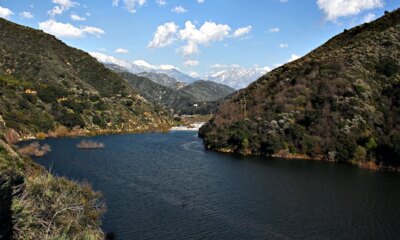A popular Los Angeles restaurant has been forced to close after a spate of violent crime cost them tens of thousands of dollars.
Ceviche Stop in Culver City lost around $30,000 in the last year alone due to the mounting toll of crime in the area.
Owner Walther Adrianzen told CBS news his Peruvian restaurant has been burgled four times in the last year alone, and he himself was recently violently attacked by a homeless person.
‘A homeless broke a tequila bottle on my head,’ he told the outlet.
‘They almost, pretty much killed me, but because I wasn’t killed it wasn’t such a big crime to be a felony.’
Owner Walther Adrianzen was recently left injured after being attacked by a homeless person
The latest incident happened while customers were inside the restaurant and prompted the businessman to shut up shop.
Adrianzen said he would one day like to continue his dream of providing Peruvian food to Los Angeles but that it would likely be around an hour away in La Puente.
‘My wife and I will come back stronger,’ Adrianzen, who grew up in Peru, said defiantly.
Cevich Stop was recently named as one of the best restaurants in Culver City by Eater.
The dishes ‘draw on traditional Peruvian flavors and techniques like lomo saltado and classic ceviche, plus more new-school interpretations like lobster nachos,’ according to the review.
The restaurant originated in a food truck serving just two dishes, run by Adrianzenand his wife Diana.
The couple opened the doors to their Culver City restaurant in 2021.
Local police data shows burglaries targeting businesses in Culver City have fallen between 2022 to 2024.
However, Adrianzen said that anecdotally the issue seems to have only got worse.
Ceviche Stop lost around $30,000 in the last year alone due to the mounting toll of crime
Ceviche Stop was recently named as one of the best restaurants in Culver City by Eater
Other businesses across LA have been forced to close following increased crime in the city.
In August, an iconic 77-year-old deli in the city teetered on the brink of closure as the street outside became overrun with homeless people and drugs.
Last month, popular Mexican restaurant Pink Taco also closed its doors on the city’s iconic Sunset Strip after 12 years.











































